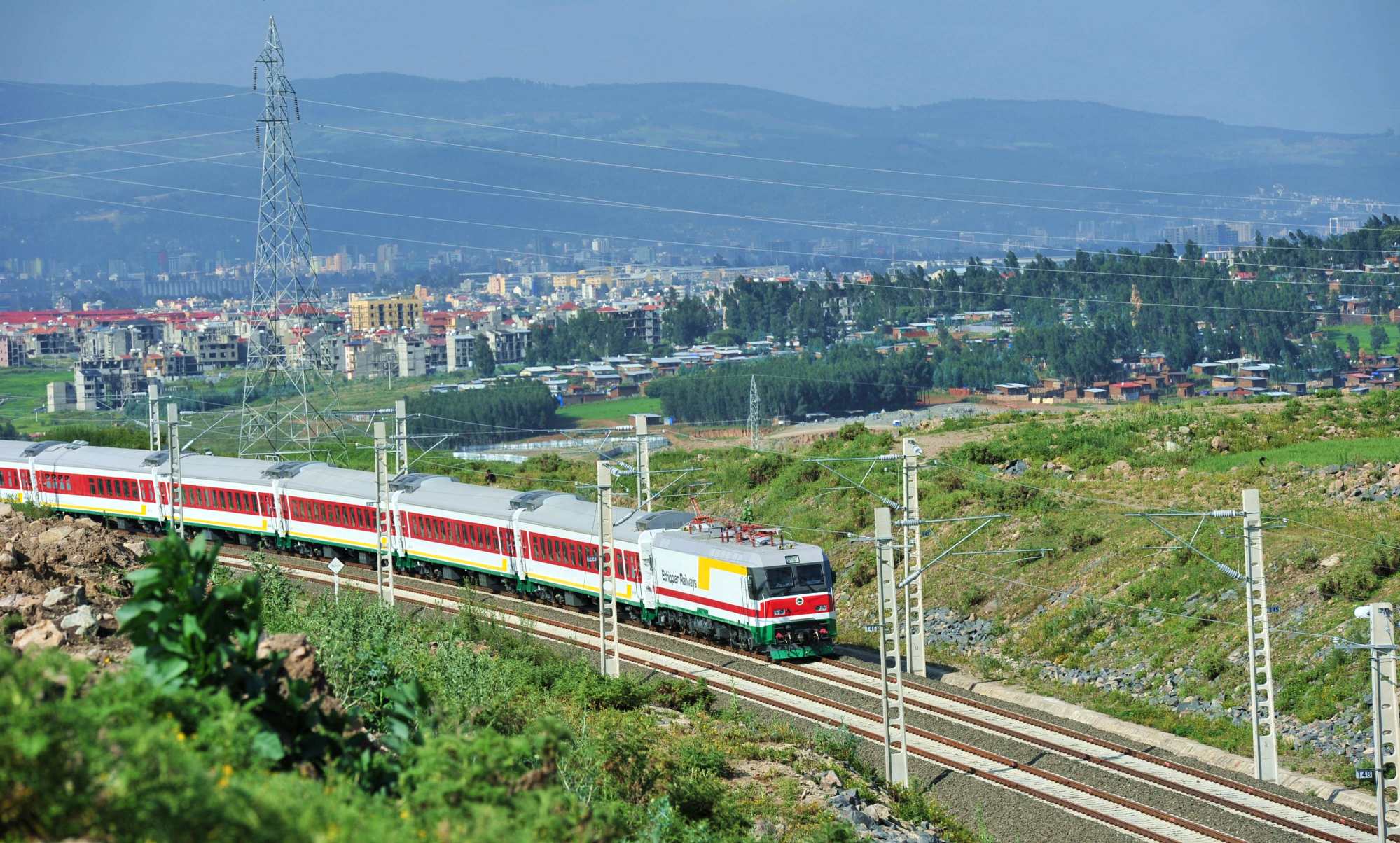
China hopes to expand East African rail network and develop ports
- The proposals could see Kenya’s Mombasa-Nairobi rail link extended to the Uganda border and the Addis Ababa-Djibouti line expanding to 5 other countries in total
- There is no rush to implement the plans and analysts said it remains to be seen how much appetite China has to finance the schemes
China is proposing a grand infrastructure plan for the Horn of Africa that would involve expanding the two major railroads and developing ports on the Red Sea and the Indian Ocean.
Wang also called for faster development of the Red Sea and Indian Ocean to develop a framework of “two axes plus two coasts”.
“This is part of our effort to help this part of the region to accelerate the building of industrial belts and economic belts to create more jobs,” Wang said at a briefing with Kenyan counterpart Raychelle Omamo in the coastal city of Mombasa on Thursday.
Wang’s visit may help revive plans to extend the Mombasa-Nairobi line to Malaba on the border with Uganda, which stalled after China’s Export-Import Bank asked Kenya in 2018 to redo a study to prove its commercial viability.
Blinken cautions Africa on China during virtual ‘trip’ to Nigeria and Kenya
China is making inroads into the Horn of Africa and has already invested heavily in Djibouti, which is home to its first overseas military base. Further investment in ports in the region may prove crucial to the success of the Maritime Silk Road.
Seifudein Adem, a professor of global studies at Doshisha University in Kyoto, Japan, said a proposed rail link between Addis Ababa and Assab, a port in Eritrea, may be the winning card in China’s new diplomatic strategy in the Horn.
Adem said:“Since Ethiopia is already linked to Kenya through a transnational road system, it is conceivable that the entire Eastern and Central African region would be interconnected before very long, with the other regions to follow.”
Adem said the expansion of rail networks in the Horn of Africa has been one of Beijing’s main strategic objectives in Africa as a way of boosting connectivity.

“Having a standard gauge railway connecting the region’s coastal and inland ports (including dry ports) will be essential for the region in the medium term,” said Deborah Brautigam, a professor of international political economy at Johns Hopkins University and founding director of the China Africa Research Initiative (CARI).
She said if African countries want economic integration with each other and the world, they will need to reshape their economic geography.
But Wang’s comments that it will happen in “due course” suggests “it depends on African governments creating the conditions (peace, stability, realistic feasibility studies) that will allow Chinese capital to be employed productively and sustainably,” Brautigam added.
Despite the renwed interest in rail investment, Yu-Shan Wu, a postdoctoral research fellow at the National Institute for the Humanities and Social Sciences at the University of Pretoria in South Africa said:“China is unlikely to commit to large infrastructure projects as it did in the past. Such projects also depend on their feasibility.
‘China’s now a big player’: why Beijing is doing more in Horn of Africa
W Gyude Moore, a senior policy fellow with the Centre for Global Development and a former Liberian public works minister, said: “Morocco recently signed onto the BRI – so it seems more of an indication of China doubling down in these regions.
“On the infrastructure front, the Chinese have repeatedly baulked at financing the rest of the [Kenyan] standard gauge railway so I would adopt a wait-and-see approach here.”


